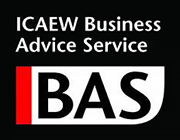Updated: 16th January 2020
Understanding Tax Loans
Dealing with tax payments can be difficult for any business given the potential for disruption to cash flow. Planning ahead financially for tax and VAT is vital, but even when you use regular cash flow projections it only takes a drop in sales or an unexpected expense at the most inopportune time to create a cash shortfall.
It is possible to regain control of the company’s financial situation and avoid going into arrears with HMRC, however, and you can do this by obtaining emergency finance - it protects the business from financial penalties, and potential creditor legal action.
Why use emergency finance for tax and VAT?
Failing to pay a VAT or tax bill is an emergency situation as it can be the start of a steep decline in financial health for your business. HMRC impose hefty penalties on companies that don’t pay their tax and VAT, and can also close businesses down quickly if they believe they’re insolvent.
It may be possible for your business to obtain emergency finance in the form of a tax loan if you can’t pay the tax bill, so what exactly are tax loans and how do they work?
What is a tax loan?
A tax loan is a form of emergency finance that helps businesses avoid problems with HMRC, and the considerable financial penalties that can be imposed. Essentially, they are short-term loans designed to deal with the specific issue of tax or VAT arrears.
If funding is sanctioned it can be paid directly to HMRC if necessary, so no time is wasted in meeting your company’s liability. A further benefit is that, once a tax loan has been granted, it’s generally paid within 24 hours.





